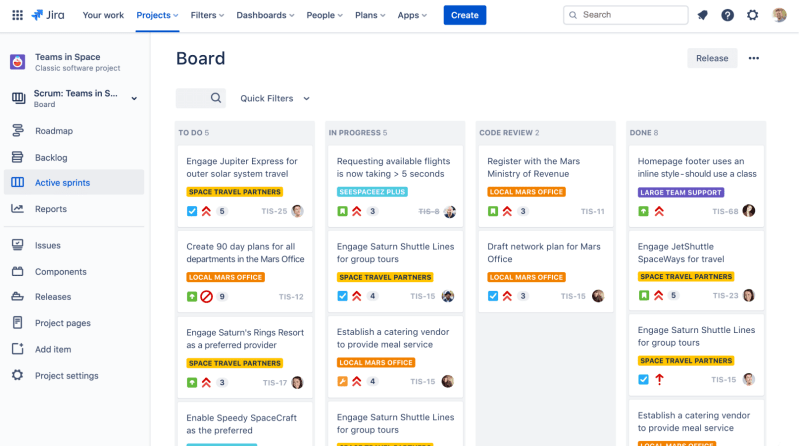At the end of a long work day you sit at your table. You enjoy a nice cup of hot tea and wonder: "What did I achieve today? Where did all the time go? I started working at 8am, worked until 6pm with very little to show for it". The next day, you start again. Work keeps piling up. Your day is full of stress. Yet the pile grows and grows. And the question remains: Where did all the time go?
Does this sound familiar to you?
In this short text, we explore the root of the mess around wasted time. Based on my own experience, we will look at some time-drains and how to improve the situation. Things that will make our life at work calmer and less stressful.
Wake up and realize what is going on
Most of us do not manage their time. Our intuitive feeling of our activity is often wrong. We misjudge where we invest time and for what. This happens to both leaders and individual contributors. The details may vary, but the general problems are the same. Let’s look at some examples.
Meeting Tetris
Tetris is one if not the most well-known videogame ever published. In essence you need to fill lines with blocks of different shapes. Full lines disappear and you get points.
The same happens to our calendar if we do not pay close attention. The calendar is still free from 9:00am to 9:30am? It will take less than 5 minutes for someone to put a "quick status call" into the free slot. Yeah! As in Tetris we filled a line with blocks. But no points for us. And the line does not disappear either. Rather more stress awaits.
Open your calendar now. Do it. And then check how many appointments were set up by yourself. Check how many of the appointments you did not schedule, you still find relevant. Often the answer to both questions is a rather small number. People swamp our calendars requiring our attention. This reduces the time we have for our work items, which keep piling up.
For every appointment, consider if we can add to the discussion or only need the result.
If we can leave the topic to other people, then we should do so. Our colleagues are competent. They will find a good initial result. We can suggest improvements or additions afterwards.
We need to ensure that we have time for actual work. Even if that means blocking time in our calendar. We use the calendar application to liberate us. We block time before and after each meeting to create notes, grab a coffee or relax. Tools help here, for example Office 365 flows can automate this.
And pro tip: we can decline meetings or propose a different time.
"Today is bad for me, but on Wednesday I am available". Most unplanned things can and should be postponed. This is beneficial for other reasons, too. The person requiring us in some appointment has more time to think. New insights or information may make the appointment obsolete. Everybody wins.
People tend to show off with their super full calendars. Let's stop this insanity. The fewer meetings the better.
Boundless altruism
We all like helping others. Let's say we are expert cloud engineers. A team member needs support while debugging a Kubernetes cluster. We play first responder. If something is broken, then we fix it. If the new intern has a question, she is free to approach us and ask away. Our door is always open. For questions. For feedback. For our colleagues.
We help team members progress.
But what about our focus? What about our progress? What about our time?
Having an open door is a noble gesture. Yet, interruptions split our focus time into useless parts. Time does not follow simple mathematical rules. 30 + 30 = 60, okay. But having two times 30 minutes is different from having a full hour of uninterrupted work.
Instead, close the door.
I know from personal experience that this may sound harsh, even rude. But why? You cannot walk into your doctor’s office if you feel like it, or can you? How about having office hours? Something like this: "You can reach out to me with ad hoc topics every Tuesday and Thursday from 1pm to 2pm. Everything else, please, only via email."
Again, most ad hoc things can be postponed. Most things are not life-and-death issues. Most things disappear if people have an extra day to think or read on the issues themselves.
Think of this as a learning opportunity. If people still need our support, then we can be sure that they are better prepared to ask the real questions. A more efficient and focused discussion is the result.
"Let’s have a party" meetings
I work with many customers from large organisations. I keep seeing "workshops" with more than twenty people scheduled for over four hours. Even before we went remote due to the pandemic, these workshops were often a farce. Remote collaboration with Zoom or MS Teams made it worse.
We invite people because we can. Even if we only need them for two minutes, for some "expert judgement". People show up because they are invited. Not because they want or can add to the discussion. Often the workshop ends up with a couple of people actually talking and driving the topics. The rest listens, wastes time and surfs the internet.
Stop having meetings with too many people.
Invite two to three people, I’d recommend three to solve any ties in discussions. Small rounds are able to solve most topics more efficient than larger rounds. You distribute the initial decisions and collect other people’s insights. It is much more effective to start working and improving on a concrete idea afterwards. Starting with a blank slate in a large round is hard and inefficient. This is not to say, that brainstorming does not work, but it can be an inefficient time-hog.
The impatient leader
Who has not received a call, where one of the following phrases was uttered?
- "Do you have a minute?"
- "Please jump onto a quick call!"
- "Please join the workshop tomorrow, it is from 8am to 3pm!"
We all know these phrases one way or the other. And I do not want to put every leader to shame, whoever used variants of these. Sometimes things seem urgent. Even so, these phrases show a disregard for other people’s time. Intentional or not, the negative impacts are the same.
Since we are the leader, people interrupt what they are working on. We reprioritized the person we are talking to. They drop the thing they are working on. They lose focus. They need more time to get back into their work later - to get back into the flow.
All because we needed something RIGHT NOW.
We should step back and check if you need it RIGHT NOW. Again, we can postpone most things. Most things are not that urgent, that we need them RIGHT NOW.
We can give that freedom to the people working for us. Instead of interrupting their work, we send an email "I need your insights on the loan system. Can you please answer the following questions in the next couple of days or find time for a meeting where we go over these questions?" In the meantime WE work on other topics. Usually, we do not have only one single thing we could work on, right? So, we are not blocked because we did not get the answers you were seeking RIGHT NOW.
Patience is a virtue. Demanding something RIGHT NOW is not patient.
The status junkie
I cannot stress it enough. Leaders irritate people if they ask for information, they could look up themselves. If we ask people to do busy work, gathering data we could easily fetch, too, then we waste people's time.
We should refrain from status-questions that tools like Jira answer. If we cannot find the information we were looking for, then we improve our tooling and dashboards. But don’t just rely on tooling. Getting real information from people is essential. It shows that the team's work matters. But, this is a topic for another article "The value of one-on-ones"...
Missguided appreciation
As leaders we want to show that we value the opinions and expertise of our colleagues. When designing a new API for the loans system, we invite all backend and frontend engineers to a workshop. We want to get everyone involved and get everyone’s opinion. And because we are leaders, everybody accepts the invitation and joins the workshop. We end up with a discussion where two or three people talk. Again, everybody else just listens or more likely surfs the internet without paying attention. Despite our good intention to show that we value the experts in the team, we end up wasting the time of most of them.
This is only a single example. Think about all the times you bound too many people into a workshop, but only a handful were actually needed.
So, why not do exactly the opposite?
We invite only the people we absolutely require. The rest, we invite as optional. In the invite we write "We design the new API for the load system. We need Erik, Denise and Wang for the initial design. If you feel you can add to the discussion, then please join. Otherwise, you will all receive a written summary explaining the decisions made. We invite you to comment on the summary. Your comments will not be dismissed but are carefully considered." The invited person decides if joining a workshop makes sense. And people do not miss information. They get the condensed result of the workshop afterwards. They can digest the information on their own time. We did not mess up their day.
We respected their time.
And a final suggestion. During one-on-ones, we should ask people if they feel like you are wasting their time. If we have a good, trustful relationship, then we can get good insights into being a better leader. If we are not conducting one-on-ones as a leader, then we should start with them.
Getting time under control
If you want to get back into control, you need to know where time was spent. This is the starting point - no substitution. I recommend maintaining a detailed time log. Start taking notes.
8:30am - 9:00am Status call with product development
9:00am - 9:30am One-on-one with Wang Smith
…
Maintain these log entries near-time. Do not work from memory. Working from memory distorts your log.
I realize that this sounds like too much work. Trust me, it will be worth it. Maintain a time log for a couple of weeks. Then sit down and analyse that log. Start asking questions for every log entry:
- Was this time well spent?
- Was this a priority?
- Was I the best person for this work?
- Could I have delegated this to someone else?
Get rid of the non-essentials. Delegate to other people if they are better suited for the work in question. Delegate to other people if they may grow by doing that work.
Let me be explicit. This is not a call to be lazy. The lazy leader is a bad leader. This is a call to focus on the essentials. Only work on the top priority at all times. If we cannot work on that, then we use the time log as a helper to see where we spent our time instead.
Since we are all bad at changing behaviours, we maintain a time log regularly. Two to three weeks every four months or so.
In conclusion
Time is the most valuable resource for knowledge workers like software engineers. It is the only resource we cannot scale or buy. It is bound. It is the most important factor for results, productivity, and efficiency.
In the end we cannot control how other people manage their time. But we can control our own time and we can control how we treat other people’s time. Realising this is the first step to less chaos and a more sustainable pace.
I pointed out a couple of methods you can use to manage time as a leader or as a single contributor.
- Join meetings if it makes sense
- Offer office hours to reduce interruptions
- Postpone non-blocking, non-essential ad hoc topics
- Setup small, focused and well prepared meetings
Be aware of the value of your time and respect other people’s time. They will thank you for it.
I did not come up with this myself. Let me point to two primary resources that I recommend to any leader or to any person growing into a lead position:
- Drucker, Peter F. The Effective Executive. (The language is sometimes dated and cringy to a modern ear. But the content is as relevant as it was 50 years ago, when it was first published)
- Fournier, Camille. The Manager's Path: A Guide for Tech Leaders Navigating Growth
Please reach out, if you have other means to manage time or if you disagree with my suggestions.












Top comments (0)